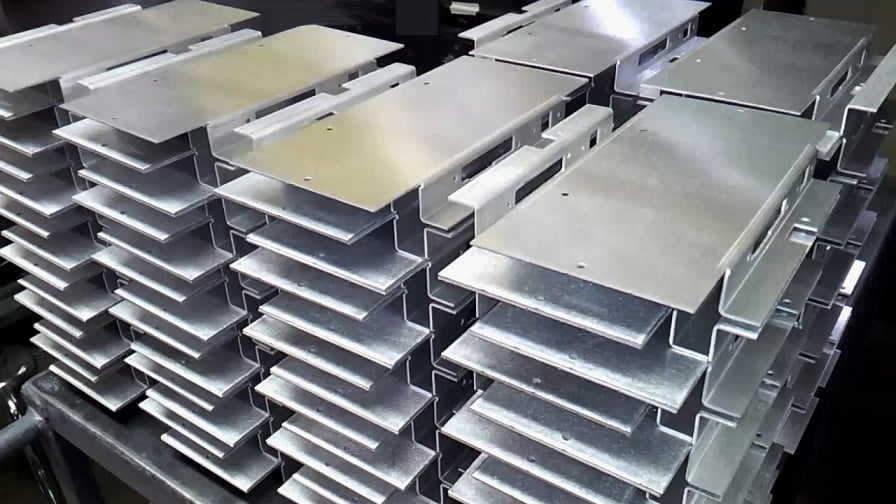Deciding on an architectural metal fabricator is a crucial step in executing your construction or design project. The choice you make can significantly impact the quality, timeline, and overall success of your project. This guide will walk you through the essential considerations when selecting a metal fabricator, helping you make an informed decision that meets your unique needs. Whether you are an industrial manufacturer or involved in smaller scale projects, understanding how to choose the right partner is key.

Understanding Your Project Requirements
Before embarking on your search for a metal fabricator, it’s important to have a clear understanding of your project requirements. Are you involved in a large-scale industrial project, or do you have smaller, more bespoke needs? The scope of your project will determine the type of fabricator you should be looking for. Consider the materials, finishes, and design specifications that your project entails.
Determining the Scope of Work
Begin by outlining the specific tasks and deliverables required for your project. This might include the fabrication of complex metal structures, precision cutting, or custom metalwork. Having a detailed scope of work will help you communicate your needs clearly to potential fabricators. For more insights on precision cutting, you can visit low volume precision cutting.
Evaluating Experience and Expertise
When choosing an architectural metal fabricator, experience and expertise are paramount. Look for a fabricator with a proven track record in delivering high-quality projects similar to yours. An experienced fabricator will have the necessary skills to handle complex projects, troubleshoot potential issues, and deliver exceptional results.
Checking Past Projects and References
One of the best ways to assess a fabricator’s capabilities is by reviewing their past projects. Ask for references and case studies that demonstrate their expertise and success in similar projects. Don’t hesitate to reach out to previous clients to get firsthand feedback on their experience working with the fabricator.
Assessing Technical Capabilities
A fabricator’s technical capabilities are integral to the success of your project. Ensure that the fabricator has the necessary equipment, technology, and skilled workforce to meet your project’s demands. Advanced machinery and technology can greatly enhance the precision and quality of the fabrication process.
Modern Technology and Equipment
In the realm of metal fabrication, innovation and technology play a significant role. Fabricators equipped with modern technology and machinery can offer superior precision and efficiency. For example, laser cutting machines provide high accuracy and are ideal for intricate designs. Learn more about the importance of technology in fabrication by visiting this resource.
Quality Control and Assurance
Quality control is a critical aspect of metal fabrication. A reliable fabricator should have robust quality control processes in place to ensure that every piece meets the highest standards. Inquire about their quality assurance protocols and how they handle any deviations from the desired specifications.
Certifications and Standards
Check if the fabricator adheres to industry standards and holds relevant certifications. Certifications such as ISO 9001 demonstrate a commitment to quality management and continuous improvement. Working with a certified fabricator provides an added layer of confidence in their ability to deliver top-notch products.
Considering Cost and Budget
While cost should not be the sole determining factor, it is certainly an important consideration. Obtain detailed quotes from multiple fabricators and compare their pricing structures. Be wary of unusually low bids, as they may indicate compromises in quality or hidden costs down the line.
Transparent Pricing and Contracts
Ensure that the fabricator provides transparent pricing and clearly outlines all costs involved. A comprehensive contract should include details about payment terms, delivery schedules, and any potential contingencies. This clarity helps avoid misunderstandings and ensures a smooth collaboration.
Evaluating Customer Service and Communication
Good communication and customer service are vital for a successful partnership with your fabricator. Choose a fabricator who is responsive, communicative, and willing to listen to your needs and concerns. Effective communication ensures that your project progresses smoothly and any issues are promptly addressed.
Responsiveness and Accessibility
Test the fabricator’s responsiveness during the initial stages of your interaction. Are they prompt in responding to inquiries and providing information? A fabricator who values communication is more likely to be proactive in addressing any challenges that may arise during the project.
Reviewing Industry Reputation
A fabricator’s reputation within the industry can provide valuable insights into their reliability and performance. Conduct online research and read reviews from other clients to gauge their reputation. A positive reputation is often indicative of a fabricator’s commitment to quality and customer satisfaction.
Industry Recognition and Awards
Consider whether the fabricator has received any industry recognition or awards for their work. Such accolades can be a testament to their expertise and dedication to excellence. Industry recognition adds credibility and reinforces your confidence in their capabilities.
The Importance of Location and Logistics
Location and logistics play a role in the efficiency and cost-effectiveness of your project. Consider the fabricator’s proximity to your project site and their ability to handle transportation and logistics effectively. A nearby fabricator can reduce transportation costs and lead times.
Logistical Planning and Coordination
Discuss the fabricator’s logistical capabilities and their approach to coordinating deliveries and installations. A well-organized logistical plan ensures that your project progresses smoothly without unnecessary delays. For more information on logistical considerations, you can visit choosing a cutting partner.
Ensuring Compliance with Regulations
Compliance with industry regulations and safety standards is paramount in metal fabrication. Ensure that the fabricator adheres to all relevant regulations and follows best practices for safety and environmental sustainability. A responsible fabricator prioritizes the well-being of their workers and the environment.
Commitment to Sustainability
Consider whether the fabricator is committed to sustainability and environmental responsibility. Sustainable practices not only benefit the environment but also enhance the fabricator’s reputation and appeal to environmentally conscious clients. To learn more about sustainable practices, explore this link.
Finalizing Your Decision
After evaluating all the factors mentioned above, it’s time to make your final decision. Weigh the pros and cons of each fabricator and consider how well they align with your project requirements. Trust your instincts and choose a fabricator who instills confidence and demonstrates a genuine commitment to your project’s success.

Frequently Asked Questions
What is the role of an architectural metal fabricator?
An architectural metal fabricator is responsible for turning design concepts into tangible metal structures and components. They use specialized techniques and equipment to shape and assemble metal materials according to project specifications.
How can I assess a fabricator’s quality?
Assess a fabricator’s quality by reviewing their past projects and seeking references from previous clients. Look for certifications and industry standards that indicate a commitment to quality control and assurance.
Why is communication important in choosing a fabricator?
Effective communication is crucial for a successful partnership with a fabricator. It ensures that your project requirements are understood, progress is tracked, and any issues are addressed promptly, leading to a smoother project execution.
This article contains affiliate links. We may earn a commission at no extra cost to you.

